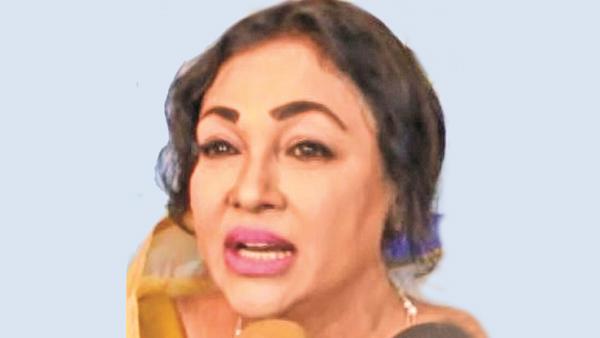
The Supreme Court’s decision unseating Geetha Kumarasinghe after declaring that she was unqualified to contest the 2015 parliamentary elections could have serious consequences for at least five other MPs, legal experts said.
The five-judge bench headed by Chief Justice Priyasath Dep upheld the May 3 Court of Appeal decision to remove film-star-turned politician, because she was disqualified to be a candidate as she also held citizenship of Switzerland.
Justice Sisira J. de Abrew, in a 26-page judgment, noted that Kumarasinghe had in fact admitted she was a Swiss citizen when she asked the Swiss authorities to revoke her citizenship after the August 2015 election.
By considering Kumarasinghe’s letter to the Swiss authorities on August 25, 2015, “it can be concluded that she (Geetha Samanmali Kumarasinghe) had admitted that she has not given up her Switzerland citizenship even on 25.8.2015.
“It is clear from the letter (R2) that the first Respondent-Appellant (Kumarasinghe) was holding a dual citizenship (Switzerland and Sri Lanka) when she was elected as a member of parliament.”
The decision of the Court of Appeal and the Supreme Court is that she was not even qualified to be a candidate, which means her name should never have been included in any nomination list for the parliamentary election.
“I hold that the first Respondent-Appellant (Geetha Samanmali Kumarasinghe) was not qualified to be elected as a Member of Parliament on 17.8.2015,” Justice De Abrew said with the four other judges agreeing.
Declaring her unqualified to be a candidate will have serious consequences for the entire United People’s Freedom Alliance (UPFA) nomination list for the Galle district from where Kumarasinghe was nominated.
At the time of filing nominations, objections were raised. Other political parties demanded that the entire UPFA Galle list be rejected because of the inclusion of a dual citizen - Kumarasinghe - in violation of the Constitution.
However, the returning officer, knowingly or unknowingly, refused and asked the JVP and the UNP to canvass their cause through courts, which they have now done successfully.
Had the returning officer taken the correct decision - which the highest courts in the country have now affirmed - the entire Galle UPFA list would have been rejected and the balance of power of parliament would have been quite different.
Election officials had earlier argued that Kumarasinghe’s removal after being declared an unsuitable candidate will not affect the entire list of the UPFA, but many legal experts beg to differ.
The Parliamentary Elections Act has safeguards for candidates in the event a fellow candidate acquiring a disqualification before or after the election. However, there should not be a disqualification at the time of filing the papers. Any disqualification of even one person at the time of nominations can lead to the rejection of the entire nomination list.
Section 115 of the Parliamentary Elections Act does not grant immunity to nominees at the time of filing the nomination papers. There are many instances of lists being rejected at parliamentary elections.
Section 115 says: “The death, withdrawal, or disqualification under any written law for election or for sitting and voting as a Member, whether before or after the election of the Member... at that election shall not invalidate or in any way affect the nomination paper of that party or group...”
However, this is on the basis that the nomination paper had been lawfully submitted. All people included in it must be citizens of Sri Lanka, not be citizens of any other country, and have no disqualification to be a candidate at the time of filing nomination papers.
Therefore, legal experts note that the Elections Commission cannot take cover under this provision (Section 115) because in Kumarasinghe’s case she was never a lawful candidate for the others in the UPFA list to benefit from Section 115.
Her nomination was rightfully challenged and it was the Returning Officer, a representative of the Election Commission, who erred, causing an injustice to the voters not only of the Galle district but the entire country.
Any narrow definition of Section 115 could lead to even foreigners being included in nomination lists and entering parliament until they are challenged in courts and thrown out after two years as in the case of Kumarasinghe.
Sri Lanka’s election monitors too have argued that Section 115 of the Parliamentary Elections Act should not apply in Kumarasinghe’s case and the Elections Commission should take cognisance of the two Court decisions.
This is the first time that an expulsion from parliament affects the entire result of a district.
Disqualifying the entire Galle UPFA list will lead to the party losing six seats (Geetha Kumarasinghe and five others) and possibly another from the national list too.
Since there is no precedent, petitioners could move Court seeking a by-election for the entire Galle district or ask the Elections Commission to re-allocate seats disregarding the votes of the UPFA. That could give the JVP a few more seats in parliament.
Any change in the Galle results will impact the national lists that will also further alter the balance of power in parliament where the UNP has 106 seats, the UPFA 95 and the JVP 6. The TNA has 16 and the EPDP and the SLMC have one each.
